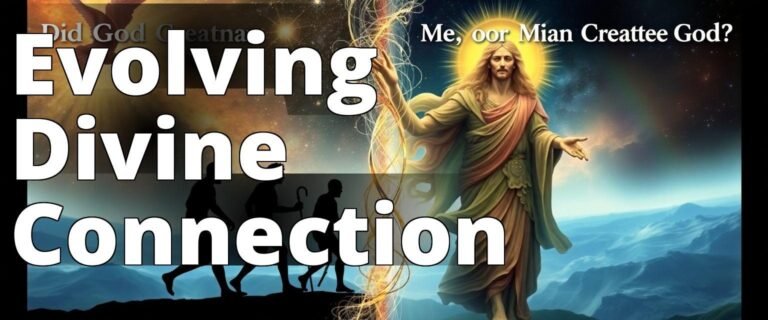How Bias Beliefs Impact What We See
Can our beliefs really shape what we see, or is it just a figment of our imagination? This question delves deep into the heart of human perception and suggests that perhaps our realities are not as concrete as we once thought. Its time to lift the veil on how bias beliefs impact what we see and unravel the intimate dance between our minds and the world we perceive.
Understanding Bias and Perception
Discover how belief systems shape our experience of reality.
– Beliefs influence perception: Our beliefs can create a filter that alters how we interpret sensory information, leading us to see what we expect rather than what is actually present.
– Expectations shape experiences: What we anticipate can significantly impact the outcomes we perceive, often reinforcing existing biases and altering our interpretations of events.
– Cultural context matters: Our backgrounds and cultural narratives play a crucial role in shaping our perceptions, as they inform the meanings we assign to experiences and phenomena.
The Power of Belief
Belief is a formidable forcefar more powerful than we give it credit for. Its not just about faith in the supernatural; belief can warp our reality in ways that are both subtle and profound. Consider the placebo effect, a fascinating phenomenon where patients experience real improvements in their health after receiving a treatment with no therapeutic value. This effect underscores the idea that belief can indeed shape our physical reality. When we believe in something strongly enough, our brain tends to align our perception to match that belief, creating a personal reality that might defy logical explanation.

Insider Tip: According to Dr. Bruce Hood, a renowned psychologist, Our brains are pattern-seeking machines, and our beliefs can alter the way we perceive patterns in the world.
The history of science is replete with such tales where belief dictated perception. Galileos heliocentric model was initially rejected not because the evidence lacked, but because the belief in a geocentric universe was too strong. This speaks volumes about how belief can blind us or open our eyes, depending on its alignment with evidence. To explore more about the influence of belief on perception, check out this article on the neuroscience of belief.
The Power of Expectation
Expectations are the offspring of belief. They prepare our minds eye to see the world in a certain way. This mental readiness often leads to a self-fulfilling prophecy. When we expect something to happen, we unconsciously make decisions that increase the likelihood of it happening. This is evident in the experiment conducted by Robert Rosenthal and Lenore Jacobson, which highlighted the “Pygmalion effect”students performed better when teachers expected more from them.

In everyday life, our expectations can influence our experiences in profound ways. If you walk into a room expecting hostility, your mind will pick up on subtle cues that reinforce this expectation, even if the room is filled with neutral or friendly faces. This selective attention is not just a psychological curiosity; it has real-world implications, especially in conflict resolution and negotiations.
Thought-provoking question: How often do we sabotage our potential experiences with negative expectations?
The Power of Bias
Bias is often portrayed as the villain in our narrative of perception, yet it is inescapable and inherently human. It is the lens through which we filter information, often without conscious awareness. Cognitive biases, such as confirmation bias, lead us to favor information that confirms our pre-existing beliefs and dismiss information that contradicts them.

An interesting study by Stanford University demonstrated this when participants were shown evidence both supporting and refuting the death penalty. Despite the evidence, individuals clung to their initial beliefs, illustrating the powerful grip of confirmation bias. This bias can have far-reaching impacts, from perpetuating stereotypes to influencing critical decisions in areas like medicine and law. For a deeper dive into how biases shape our reality, see this comprehensive review on cognitive biases.
Insider Tip: Dr. Daniel Kahneman, a Nobel laureate in Economics, points out that we can be blind to the obvious, and we are also blind to our blindness, highlighting the pervasive nature of bias.
The Power of Perception
Perception is the brains interpretation of sensory information, and its as individual as fingerprints. Its why two people can witness the same event and walk away with entirely different accounts. Our brain fills in gaps using previous knowledge, beliefs, and biases, constructing a version of reality that feels complete and logical to us.

The infamous “dress” that appeared to be different colors to different people is a perfect example of perception variability. This phenomenon challenges the notion of an objective, shared reality, suggesting that what we see is heavily influenced by internal factors. This divergence in perception can lead to misunderstandings and conflicts, emphasizing the need for empathy and open-mindedness in interpersonal interactions.
Thought-provoking question: If perception is so subjective, how do we ever reach a consensus on what is real?
The Power of Experience
Our experiences sculpt our perception like a potter molds clay. Experiences lay the groundwork for our expectations, beliefs, and biases, which in turn shape how we interpret new information. This cyclical process makes our perception of the world both a product and a predictor of our experiences.

Consider how someone who has experienced betrayal might perceive a new relationship. They may be hyper-vigilant to signs of deceit, interpreting innocuous actions as red flags. This highlights how past experiences can color our present reality, often creating self-perpetuating cycles that can be challenging to break.
Research from the University of California suggests that our brain’s plasticity allows for experiences to continuously shape and reshape perceptions, highlighting the potential for change and growth. For more on how experiences shape perception, visit this article on neuroplasticity.
The Power of Culture
Culture acts as a collective lens through which groups of people interpret and navigate the world. It provides a shared set of beliefs, values, and practices that influence how individuals within that culture perceive reality. Cultural differences can lead to varied interpretations of the same event, which can be both enriching and challenging in multicultural interactions.

For instance, a gesture considered polite in one culture might be offensive in another. This cultural variability extends beyond behaviors to perceptions of time, space, and even color. A study by MIT found that language and culture significantly affect how people perceive and categorize colors, demonstrating culture’s deep impact on perception.
Insider Tip: Anthropologist Edward Hall stated, Culture is mans medium; there is not one aspect of human life that is not touched and altered by culture.
The Power of Context
Context is the backdrop against which we interpret events. It provides the situational cues that help us understand and respond appropriately. In the absence of context, our interpretations can go awry, leading to miscommunication and misjudgment.

Imagine hearing a loud noise. In a quiet library, it might be startling or irritating, while at a construction site, it would be expected and ignored. This illustrates how context shapes our perception and reaction to stimuli. Recognizing the power of context can enhance our understanding and empathy, reducing conflict arising from misinterpretation.
For a comprehensive look at how context affects perception, consider exploring this psychological study on context effects.
The Power of Choice
Choice is a testament to the agency we possess over our perceptions and beliefs. Every decision we make, consciously or subconsciously, shapes our reality. This power of choice can be liberating but also daunting, as it places the responsibility for our perceptions squarely on our shoulders.

Consider the choice to view challenges as opportunities rather than obstacles. This reframing can transform our perception of adversity, leading to resilience and growth. The power of choice underscores the potential for self-determination and change, reminding us that while we cannot control our circumstances, we can control how we perceive and respond to them.
Thought-provoking question: How do the choices we make daily impact our long-term perception of the world?
The Power of Attention
Attention is the spotlight of consciousness, directing our perception to specific aspects of our environment while ignoring others. This selective focus creates a filtered version of reality, emphasizing certain details while relegating others to the background.

Our attention can be easily manipulated, as demonstrated by the “invisible gorilla” experiment. Participants focused on counting basketball passes often failed to notice a person in a gorilla suit walking through the scene. This experiment highlights how selective attention can create blind spots in our perception, emphasizing the need for mindfulness and awareness.
For more on how attention shapes perception, delve into this intriguing experiment.
The Power of Memory
Memory is the archive of our experiences, yet it is far from infallible. It is reconstructive rather than reproductive, meaning our memories are not exact replicas but rather interpretations of past events. This reconstructive nature of memory can alter our perception of reality, as memories are influenced by beliefs, emotions, and new information.

False memories are a stark example of this phenomenon, where individuals recall events that never occurred. A study by Elizabeth Loftus demonstrated that suggestive questioning could implant false memories in participants, highlighting the malleability of memory. This has significant implications in legal settings, where eyewitness testimony can be heavily relied upon.
Explore more on the fragility of memory in this article on false memories.
The Power of Interpretation
Interpretation is the meaning we ascribe to our perceptions. It is the final step in the perception process, turning sensory inputs into coherent narratives. Our interpretations are influenced by all the aforementioned factorsbeliefs, biases, culture, and contextcreating a unique version of reality for each individual.

In literature, two readers might interpret the same book differently based on their personal experiences and beliefs. This variability in interpretation is what makes art and literature so rich and subjective. However, it can also lead to misunderstandings and conflict when interpretations diverge significantly.
Insider Tip: Philosopher Friedrich Nietzsche remarked, There are no facts, only interpretations, emphasizing the subjective nature of reality.
The Power of Meaning
Meaning is the significance we derive from our interpretations. It is the personal narrative we construct to make sense of the world and our place within it. Meaning gives depth to our experiences, influencing our emotions, motivations, and actions.

Viktor Frankl, a Holocaust survivor and psychiatrist, emphasized the power of meaning in his seminal work, “Man’s Search for Meaning.” He argued that the ability to find meaning in suffering was crucial for survival. This highlights how powerful a force meaning can be in shaping our perception and guiding our lives.
For a deeper understanding of meaning-making, explore Frankl’s work.
The Power of Belief Revisited
As we revisit the power of belief, it becomes evident that it is the cornerstone of our perception. Belief sets the foundation upon which expectations, biases, culture, and context build. It is both the architect and the inhabitant of our personal reality, capable of transforming the mundane into the miraculous or the benign into the terrifying.

In conclusion, the impact of bias beliefs on what we see is profound and multifaceted. It challenges us to question the certainty of our perceptions and the rigidity of our beliefs. By acknowledging and understanding the complex interplay of these factors, we can strive for a more open-minded, empathetic, and enriched perception of the world around us.
Call to Action: Reflect on your own beliefs and consider how they might be shaping your perception of reality. Are there areas where you could benefit from a broader perspective?
For more articles exploring the intersection of perception and reality, visit Thin White Lies.
FAQs
Question: How do bias beliefs affect our perception of supernatural events?
Answer: Bias beliefs shape our interpretations, influencing how we perceive supernatural phenomena.
Question: What role do cognitive biases play in observing the paranormal?
Answer: Cognitive biases can distort our understanding, leading us to misinterpret evidence.
Question: Who is most affected by bias beliefs in supernatural experiences?
Answer: Individuals with strong pre-existing beliefs are often more susceptible to bias.
Question: How can I overcome my bias beliefs regarding supernatural events?
Answer: Challenging your beliefs through critical thinking can help broaden your perspective.
Question: What are common examples of bias beliefs in the supernatural context?
Answer: Confirmation bias and the placebo effect are common in interpreting the supernatural.
Question: Why should I trust my perceptions of supernatural occurrences?
Answer: While perceptions are valid, recognizing bias can enhance critical analysis of experiences.







